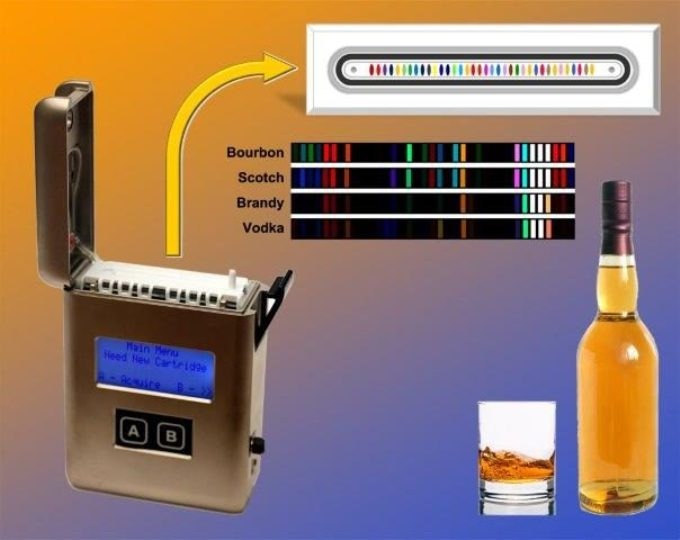Jan 12 2018
Watered-down or fake liquors are capable of reaping financial rewards for nefarious individuals. However, the adulteration of liquor results in cheated consumers and can also lead to health hazards caused by added contaminants.
As reported in ACS Sensors scientists have been developing a portable device featured with an advanced sensor array capable of identifying liquors and determining if they have been altered, thus providing a strategy for liquor quality assurance.
 A portable device with an advanced sensor can “sniff” out counterfeit liquors. (Image credit: Kenneth S. Suslick, Ph.D.)
A portable device with an advanced sensor can “sniff” out counterfeit liquors. (Image credit: Kenneth S. Suslick, Ph.D.)
In the past few years, deaths due to contaminated alcohol have been reported in Indonesia, China, Poland, Mexico and Russia, among several other places. Unscrupulous individuals expecting to make a profit could homebrew liquor and then bottle it in official-looking packaging, or even dilute liquor with anything ranging from water to antifreeze. Kenneth S. Suslick and Zheng Li from the University of Illinois at Urbana-Champaign desired to address this increasing health concern by manufacturing a device that can effortlessly identify tainted products.
The researchers produced a disposable sensor with 36 dyes capable of changing color when exposed to specific components in liquor. Partial oxidation of the liquor vapors enhanced the sensor's response. Employing a handheld image analyzer for detecting these color changes, the scientists were able to correctly identify the alcoholic content and brand of 14 types of liquors, including different bourbon, rye, brandy, scotch whiskies and vodka with greater than 99% accuracy. In a proof-of-concept experiment in order to establish a real-world application, the researchers were also able to sniff out booze that had been watered down, just by as little as 1%.
The authors accepted postdoctoral funding from the Procter and Gamble Foundation.